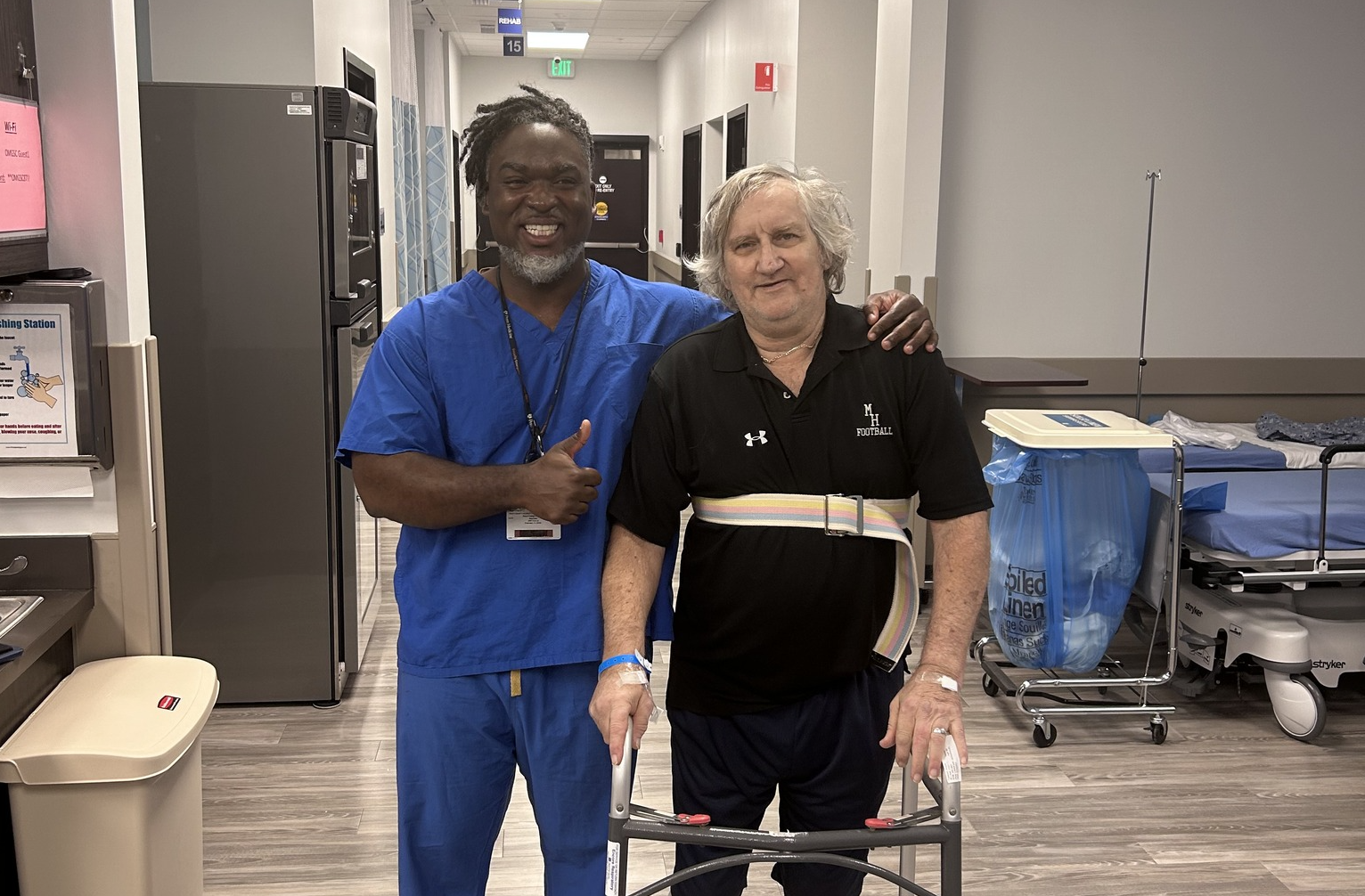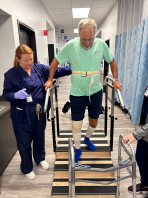
Total joint replacement surgery, whether for the hip or knee, has been traditionally associated with lengthy hospital stays and prolonged recovery periods. However, advances in surgical techniques and anesthesia have made it possible for many patients to undergo these procedures on an outpatient basis. Outpatient total joint replacement surgery offers numerous benefits, allowing individuals to regain mobility and return to their daily lives more swiftly.
In this blog, we’ll explore the advantages of outpatient joint replacement surgery and why it’s becoming an increasingly popular choice.
9 Benefits of Outpatient Total Joint Replacement Surgery

Dr. Germanuel Landfair – OMGTB Joint Replacement Specialist
1. Reduced Hospital Stay
The most apparent benefit of outpatient total joint replacement surgery is the reduced length of hospital stay. In contrast to the typical inpatient surgery, which may require several days of hospitalization, outpatient surgery allows you to return home on the same day as your procedure or after a short observation period. This significantly lowers healthcare costs and minimizes disruption to your daily life.
2. Faster Recovery
Outpatient surgery is associated with a quicker recovery timeline. Being in the comfort of your own home can aid in the healing process by reducing stress and exposure to hospital-acquired infections. Patients who undergo outpatient joint replacement surgery often experience less pain, reduced discomfort, and a faster return to daily activities.
3. Lower Infection Risk
Hospitals can be breeding grounds for infections, and the longer you stay in a hospital, the higher your risk of exposure. Outpatient surgery reduces your time in a hospital environment, which can lower your risk of post-surgery infections and complications.
4. Personalized Recovery Environment
Recovering at home provides a personalized and comfortable environment, which can contribute to a faster and more peaceful recovery. You can rest in your own bed, use your own bathroom, and enjoy the support of loved ones.
5. Enhanced Mobility and Independence
Outpatient surgery encourages early mobilization and physical activity. Patients are encouraged to begin walking and performing rehabilitation exercises soon after surgery, promoting joint function and muscle strength. This early engagement in mobility aids in regaining independence more rapidly.
6. Reduced costs
Outpatient joint replacement surgery is generally more cost-effective than inpatient procedures. Shorter hospital stays, reduced medication expenses, and decreased exposure to potential complications can lead to significant cost savings.
7. Efficient Use of Healthcare Resources
Outpatient surgery helps healthcare facilities optimize their resources by freeing up hospital beds for more critical cases. This efficiency benefits both patients and the healthcare system by reducing wait times and improving overall access to care.
8. Customized Care Plans
Outpatient joint replacement surgery often involves personalized care plans tailored to individual needs. You’ll receive detailed instructions on post-surgery exercises, pain management, and follow-up appointments, ensuring you have the tools and support necessary for a successful recovery.
9. High Success Rates
Studies have shown that outpatient total joint replacement surgery can yield outcomes comparable to traditional inpatient procedures in terms of pain relief and joint function. This demonstrates that the benefits of outpatient surgery do not compromise the quality of care or long-term results.
Conclusion
Outpatient total joint replacement surgery offers patients the opportunity for a faster, more comfortable, and cost-effective recovery. While not everyone is a candidate for outpatient surgery, advancements in medical techniques and healthcare practices have expanded its accessibility. If you’re considering joint replacement surgery, discuss the outpatient option with your healthcare provider to determine if it’s suitable for your specific case. Embracing the advantages of outpatient surgery may be the key to a smoother and more expedient path to a pain-free, active, and fulfilling life.





